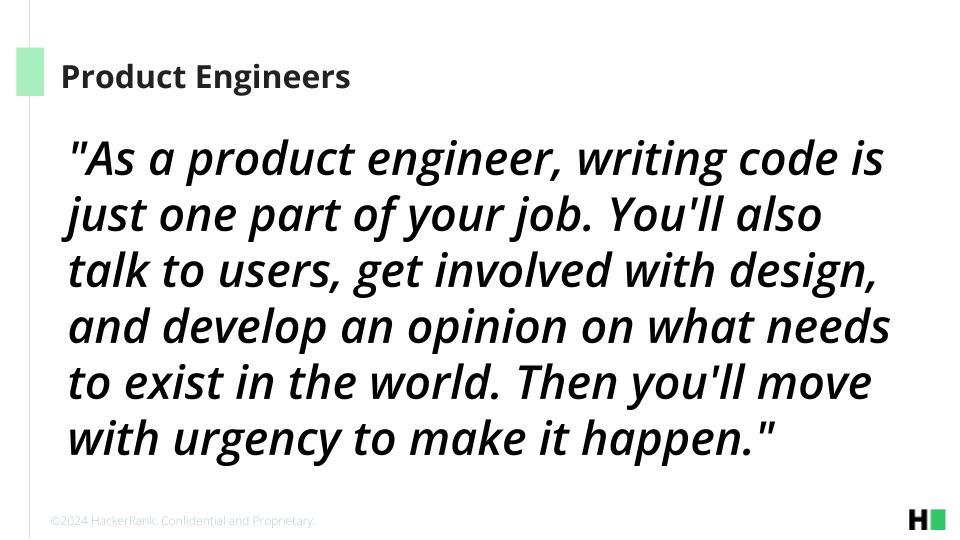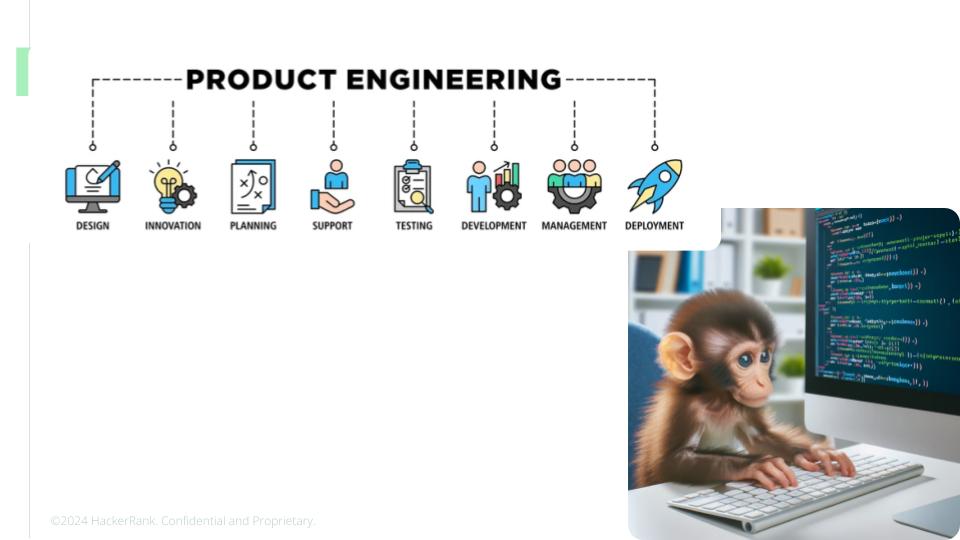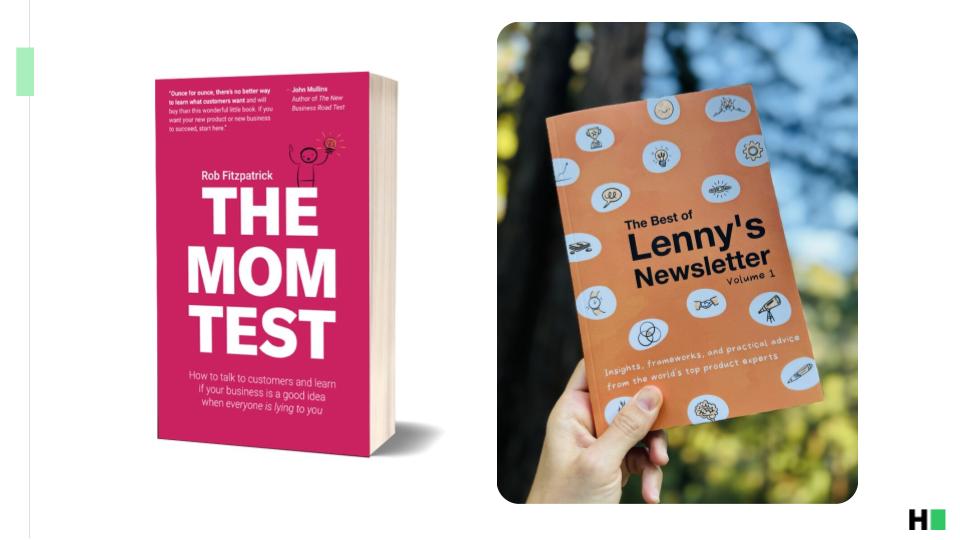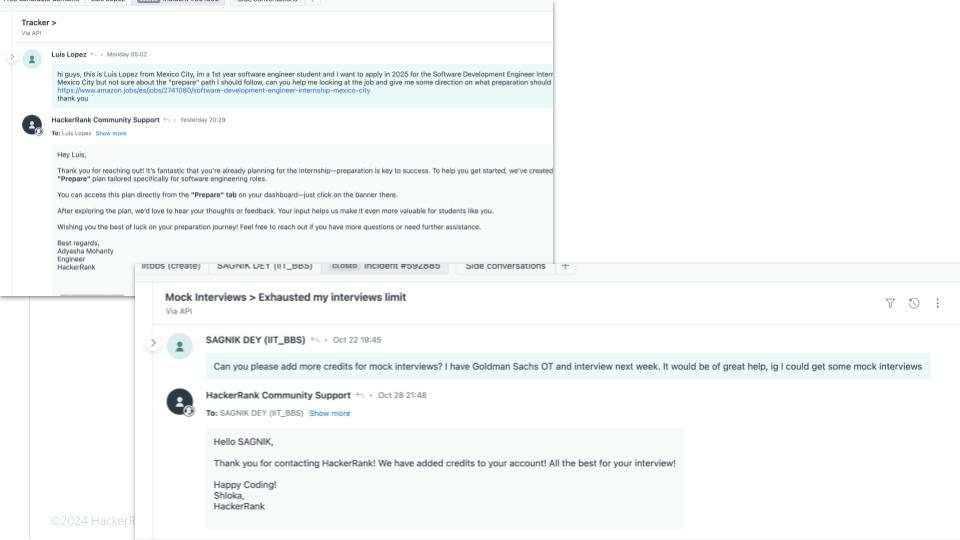A topic that has been something I’ve been talking a lot to the rest of the company. These are the builders who don’t just write code—they design experiences, solve problems, and ultimately solve customer’s end to end problem.
The role of a product engineer extends beyond traditional software development. They bridge the gap between technical capability and user-focused design. Unlike backend engineers who focus on system architecture or data engineers who specialize in pipelines, product engineers work on bringing a product vision to life in ways that delight the end user. It’s one thing to say “I write code” and it’s another to say “I solve this problem for the people by writing code.”
Key Traits of Product Engineer
- Customer Empathy
A product engineer spends as much time thinking about who will use their product as they do about how it will work. They understand the user’s needs, pain points, and goals. - Collaboration
Product engineers work closely with designers, product managers, and other stakeholders. They own both the idea and the execution. - Attention to Detail
Whether it’s the performance of an API or the animation of a toggle button, product engineers know the small things can make a big difference in user experience.
Below are a few slides from a recent talk highlighting the importance of having product engineers in the team. These entire presentation was much longer, but these slides focuses on the product engineer role. The talk track for these slides are added along with each slide.
It is good to have a team of a product engineers. There is my definition of product engineers. Writing code is JUST one part of the the job. Talking to users, getting involved with design and taking product decisions. Normal engineers think only about the code. All their problems revolves around code. And of course, move with the urgency. Moving at high speed is core.
The internal joke we have within our team is that we use the term “code monkeys” (no disrespect to monkeys that can code) and what product engineering means. You are involved in every single aspect of the product and not just the “development”. That means you can’t build something and throw it to the other side for maintenance. The engineers are responsible for QA, Support and Deployment (usually pushed to QA team, Support team or DevOps team)
As we started working on this, these are two good books that might help your engineers start with the product thinking. In fact, after reading “The Mom Test”, our engineers try to get the right validation before thinking of releasing a feature.
One positive side effect of the engineering team turning into product engineers is that they are more closer to the customers. For example, here are a couple of support tickets handled by the team. This is the only team handling support tickets and have the access to directly respond to the end users. And that’s because the team cares about users.
Here are some more links if you want to understand the concept of product engineering in detail
- https://posthog.com/blog/what-is-a-product-engineer
- https://productengineer.org/
- https://www.cycle.app/blog/the-product-manifesto
And so, what is the role of a product manager when the team is full of product engineers. Can we eliminate this role if everyone in the team is a product engineer?
Unfortunately no. In fact, I’ve come to the realization that you need a good product manager when the team is full of product engineers.
While having a team of product engineers is a good thing overall, at times, you tend to pull in different directions. Imagine an object pushed in different directions from all sides, the object won’t move at all. For example, one engineer might talk to a user who would complain that the website is slow, another engineer talk to a user who might complain about lack of translation. Ultimately, the product manager takes the final veto call in the overall direction and guide multiple product engineers in the same direction.
While every engineer might consider themselves as product engineers, here’s a checklist to see if you are really a product engineer.
Have you worked with or as a product engineer? Share your thoughts and stories.




